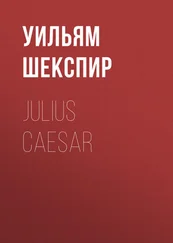Napoleon III - History of Julius Caesar Vol. 2 of 2
Здесь есть возможность читать онлайн «Napoleon III - History of Julius Caesar Vol. 2 of 2» — ознакомительный отрывок электронной книги совершенно бесплатно, а после прочтения отрывка купить полную версию. В некоторых случаях можно слушать аудио, скачать через торрент в формате fb2 и присутствует краткое содержание. Жанр: foreign_antique, foreign_prose, Биографии и Мемуары, на английском языке. Описание произведения, (предисловие) а так же отзывы посетителей доступны на портале библиотеки ЛибКат.
- Название:History of Julius Caesar Vol. 2 of 2
- Автор:
- Жанр:
- Год:неизвестен
- ISBN:нет данных
- Рейтинг книги:4 / 5. Голосов: 1
-
Избранное:Добавить в избранное
- Отзывы:
-
Ваша оценка:
- 80
- 1
- 2
- 3
- 4
- 5
History of Julius Caesar Vol. 2 of 2: краткое содержание, описание и аннотация
Предлагаем к чтению аннотацию, описание, краткое содержание или предисловие (зависит от того, что написал сам автор книги «History of Julius Caesar Vol. 2 of 2»). Если вы не нашли необходимую информацию о книге — напишите в комментариях, мы постараемся отыскать её.
History of Julius Caesar Vol. 2 of 2 — читать онлайн ознакомительный отрывок
Ниже представлен текст книги, разбитый по страницам. Система сохранения места последней прочитанной страницы, позволяет с удобством читать онлайн бесплатно книгу «History of Julius Caesar Vol. 2 of 2», без необходимости каждый раз заново искать на чём Вы остановились. Поставьте закладку, и сможете в любой момент перейти на страницу, на которой закончили чтение.
Интервал:
Закладка:
Meanwhile the Belgæ, after having concentrated their forces in the country of the Suessiones, to the north of the Aisne, had invaded the territory of the Remi. On their road, and at eight miles from the Roman camp ( see Plate 7 ), was a town of the Remi called Bibrax ( Vieux-Laon ). 247The Belgæ attacked it vigorously, and it was defended with difficulty all day. These peoples, like the Celts, attacked fortresses by surrounding them with a crowd of combatants, throwing from every side a great quantity of stones, to drive the defenders away from the walls; then, forming the tortoise, they advanced against the gates and sapped the walls. When night had put a stop to the attack, Iccius, who commanded in the town, sent information to Cæsar that he could hold out no longer, unless he received prompt succour. Towards midnight the latter sent him Numidians, Cretan archers, and Balearic slingers, who had the messengers of Iccius for their guides. This re-enforcement raised the courage of the besieged, and deprived the enemy of the hope of taking the town; and after remaining some time round Bibrax, laying waste the land and burning the hamlets and houses, they marched towards Cæsar, and halted at less than two miles from his camp. Their fires, kindled on the right bank of the Miette, indicated a front of more than 8,000 paces (twelve kilomètres).
The great numbers of the enemy, and their high renown for bravery, led the proconsul to resolve to postpone the battle. If his legions had in his eyes an incontestible superiority, he wished, nevertheless, to ascertain what he could expect from his cavalry, which was composed of Gauls. For this purpose, and to try, at the same time, the courage of the Belgæ, he engaged them every day in cavalry combats in the undulated plain to the north of the camp. Once certain that his troops did not yield in valour to those of the enemy, he resolved to draw them into a general action. In front of the entrenchments was an extensive tract of ground, advantageous for ranging an army in order of battle. This commanding position was covered in front and on the left by the marshes of the Miette. The right only remained unsupported, and the Belgæ might have taken the Romans in flank in the space between the camp and the stream, or turned them by passing between the camp and the Aisne. To meet this danger, Cæsar made, on each of the two slopes of the hill, a fosse, perpendicular to the line of battle, about 400 paces (600 mètres) in length, the first reaching from the camp to the Miette, the second joining it to the Aisne. At the extremity of these fosses he established redoubts, in which were placed military machines. 248
Battle on the Aisne.
III. Having made these dispositions, and having left in the camp his two newly-raised legions to serve as a reserve in case of need, Cæsar placed the six others in array of battle, the right resting on the retrenchments. The enemy also drew out his troops and deployed them in face of the Romans. The two armies remained in observation, each waiting till the other passed the marsh of the Miette, as the favourable moment for attack. Meanwhile, as they remained thus stationary, the cavalry were fighting on both sides. After a successful charge, Cæsar, perceiving that the enemies persisted in not entering the marshes, withdrew his legions. The Belgæ immediately left their position to move towards the Aisne, below the point where the Miette entered it. Their object was to cross the river between Gernicourt and Pontavert, where there were fords, with part of their troops, to carry, if they could, the redoubt commanded by the lieutenant Q. Titurius Sabinus, and to cut the bridge, or, at least, to intercept the convoys of provisions, and ravage the country of the Remi, to the south of the Aisne, whence the Romans drew their supplies.
The barbarians were already approaching the river, when Sabinus perceived them from the heights of Berry-au-Bac; 249he immediately gave information to Cæsar, who, with all his cavalry, the light-armed Numidians, the slingers, and the archers, passed the bridge, and, descending the left bank, marched to meet the enemies towards the place threatened. When he arrived there, some of them had already passed the Aisne. An obstinate struggle takes place. Surprised in their passage, the Belgæ, after having experienced considerable loss, advance intrepidly over the corpses to cross the river, but are repulsed by a shower of missiles; those who had reached the left bank are surrounded by the cavalry and massacred. 250
Retreat of the Belgæ.
IV. The Belgæ having failed in taking the oppidum of Bibrax, in drawing the Romans upon disadvantageous ground, in crossing the river, and suffering, also, from want of provisions, decided on returning home, to be ready to assemble again to succour the country which might be first invaded by the Roman army. The principal cause of this decision was the news of the threatened invasion of the country of the Bellovaci by Divitiacus and the Ædui: the Bellovaci refused to lose a single instant in hurrying to the defence of their hearths. Towards ten o’clock in the evening, the Belgæ withdrew in such disorder that their departure resembled a flight. Cæsar was informed immediately by his spies, but, fearing that this retreat might conceal a snare, he retained his legions, and even his cavalry, in the camp. At break of day, better informed by his scouts, he sent all his cavalry, under the orders of the lieutenants Q. Pedius and L. Aurunculeius Cotta, 251and ordered Labienus, with three legions, to follow them. These troops fell upon the fugitives, and slew as many as the length of the day would permit. At sunset they gave up the pursuit, and, in obedience to the orders they had received, returned to the camp. 252
The coalition of the Belgæ, so renowned for their valour, was thus dissolved. Nevertheless, it was of importance to the Roman general, in order to secure the pacification of the country, to go and reduce to subjection in their homes the peoples who had dared to enter into league against him. The nearest were the Suessiones, whose territory bordered upon that of the Remi.
Capture of Noviodunum and Bratuspantium.
V. The day after the flight of the enemy, before they had recovered from their fright, Cæsar broke up his camp, crossed the Aisne, descended its left bank, invaded the country of the Suessiones, arrived after a long day’s march (45 kilomètres) before Noviodunum ( Soissons ) ( see Plate 7 ), and, informed that this town had a weak garrison, he attempted the same day to carry it by assault; he failed, through the breadth of the fosses and the height of the walls. He then retrenched his camp, ordered covered galleries to be advanced ( vineas agere ), 253and all things necessary for a siege to be collected. Nevertheless, the crowd of fugitive Suessiones threw themselves into the town during the following night. The galleries having been pushed rapidly towards the walls, the foundations of a terrace 254to pass the fosse ( aggere jacto ) were established, and towers were constructed. The Gauls, astonished at the greatness and novelty of these works, so promptly executed, offered to surrender. They obtained safety of life at the prayer of the Remi.
Cæsar received as hostages the principal chiefs of the country, and even the two sons of King Galba, exacted the surrender of all their arms, and accepted the submission of the Suessiones. He then conducted his army into the country of the Bellovaci, who had shut themselves up, with all they possessed, in the oppidum of Bratuspantium ( Breteuil ). 255The army was only at about five miles’ distance from it, when all the aged men, issuing from the town, came, with extended hands, to implore the generosity of the Roman general; when he had arrived under the walls of the place, and while he was establishing his camp, he saw the women and children also demanding peace as suppliants from the top of the walls.
Читать дальшеИнтервал:
Закладка:
Похожие книги на «History of Julius Caesar Vol. 2 of 2»
Представляем Вашему вниманию похожие книги на «History of Julius Caesar Vol. 2 of 2» списком для выбора. Мы отобрали схожую по названию и смыслу литературу в надежде предоставить читателям больше вариантов отыскать новые, интересные, ещё непрочитанные произведения.
Обсуждение, отзывы о книге «History of Julius Caesar Vol. 2 of 2» и просто собственные мнения читателей. Оставьте ваши комментарии, напишите, что Вы думаете о произведении, его смысле или главных героях. Укажите что конкретно понравилось, а что нет, и почему Вы так считаете.












